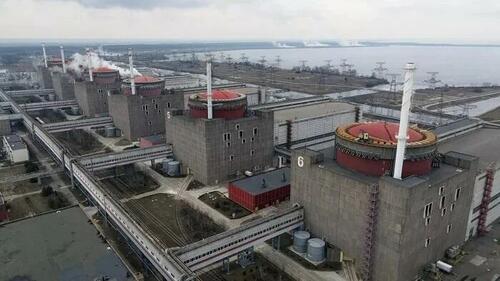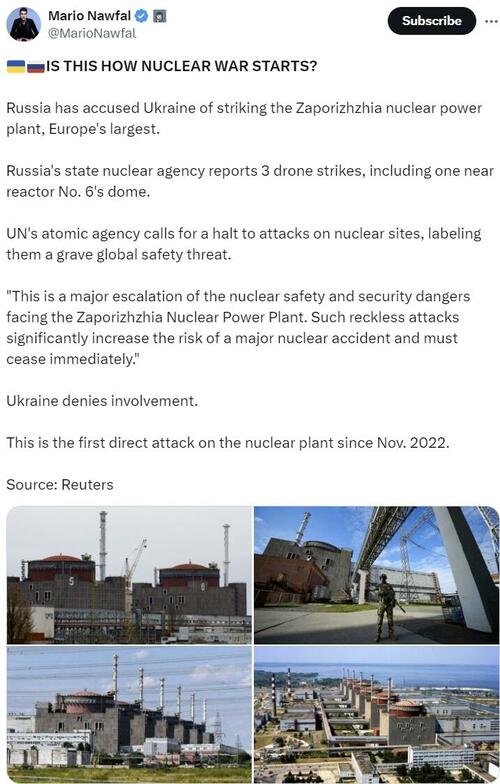‘Dangerous Provocation’: Kremlin Blasts Ukraine For Drone Strike On Zaporizhzhia Nuclear Plant
The International Atomic Energy Agency is once again sounding the alarm over the potential that disaster could strike the Russian-controlled Zaporizhzhia Nuclear Power Plant in southeastern Ukraine, which is the largest in Europe.
On Sunday, for the first time since 2022, Ukraine apparently sent a drone against the facility and it struck one of the plant’s six nuclear reactors. While Kiev has firmly denied it was behind the attack, Moscow has denounced it as a “very dangerous provocation” from Ukraine forces. Kremlin spokesman Dmitry Peskov denounced it as “a very dangerous practice with very bad negative consequences.” He said it’s but the latest example of Kiev’s “terrorist activity.”
“IAEA staff who are on site have had the opportunity to witness these attacks,” Peskov added. Russian state-owned nuclear agency Rosatom reported casualties as a result of the strike, detailing that three people were wounded in the “unprecedented series of drone attacks.”
IAEA head Rafael Grossi warned that if this continues, a serious nuclear accident with radiological consequences could occur. “This cannot happen,” Grossi wrote on X Sunday. He urged both warring sides to avoid any aggression which violates fundamental principles meant to safeguard nuclear facilities.
Russia has long occupied the facility and overseen its operations, utilizing local Ukrainian engineers, and through the course of the war there have been sporadic Ukrainian assaults on the plant.
“Damage at unit 6 has not compromised nuclear safety, but this is a serious incident with potential to undermine integrity of the reactor’s containment system,” Grossi described. The IAEA said that a drone strike resulted in a “detonation” which was “consistent with IAEA observations.”
EuroNews further reports that “According to plant authorities, there was no critical damage… Radiation levels at the plant were also normal after the strikes.”
Additionally, state-run TASS has confirmed the following details of the plant’s current status:
The radiation level at the plant and the adjacent territory has not changed. It corresponds to the normal operation of power units and does not exceed the natural background values. The power unit that was hit is currently in the “cold shutdown” mode. Before that, the Ukrainian military carried out an attack on the ZNPP premises on April 5. Drone attacks were recorded in the area of the cargo port and the nitrogen-oxygen station.
During the opening months of the conflict following Russia’s invasion in Feb. 2022, there was widespread condemnation against Russian forces centered on the Zaporizhzhia.
However, after Russia clearly came into full control of the plant’s daily operations, and as Ukraine forces began dangerously shelling it and sending the occasional drone, global condemnations of the actions of the Ukraine side were curiously absent. With this newest incident too, UN and Western officials are carefully avoiding naming Ukraine as the culprit.
But of course, the Russians likely didn’t just try to drone themselves. But interestingly, in the past Ukrainian media sources sought to claim Moscow would prepare a ‘false flag’ at the plant. This fresh weekend event is the first time Zaporizhzhia has been the intense focus of international headlines in over a year.
Tyler Durden
Mon, 04/08/2024 – 12:20
via ZeroHedge News https://ift.tt/uUGvXMt Tyler Durden

